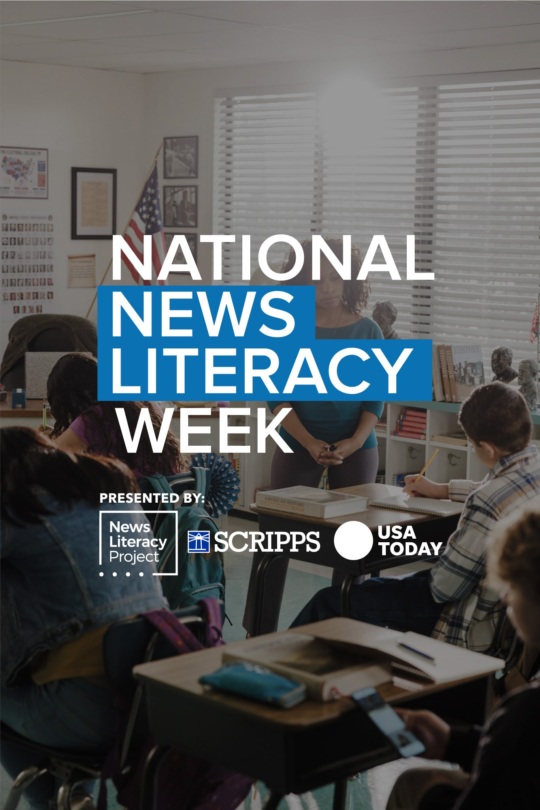
NLP in the news: Twitter’s verification changes and AI standards for newsrooms
The information landscape gets more complex by the day, with changes in how to verify Twitter accounts and challenges in keeping up with the rapid spread of generative artificial intelligence technologies. In America’s classrooms, a decline in history and civics national test scores emphasizes the need for more robust instruction in the subjects, with a focus on news literacy.
In an interview with AARP, Dan Evon, NLP’s senior manager of education design, helped older adults make sense of the recent removal of verification checkmarks on Twitter. With the checkmarks now available to anyone who pays for them, Evon explained that the symbols should no longer be used as a shortcut for deciding which accounts to trust.
“The one tip that I always come back to is to slow down,” he told AARP. “You come across misinformation, whether it is something that confirms your political beliefs, or something that appeals or triggers some sort of emotion. It happens so quickly that you just see it, you believe it, you share it.”
In an opinion piece for Poynter, Christina Veiga, NLP’s senior director of media relations, encouraged news organizations to set standards for how their journalists will use AI. The piece also calls on newsrooms to disclose when AI is used to report, write and disseminate stories.
“Building trust with audiences, committing to transparency, and ensuring accountability are more important for newsrooms than ever, given the potential for generative AI to be weaponized to spread disinformation at a pace we’ve never experienced before,” Veiga wrote.
In the Washington Post, Kim Bowman, NLP’s manager of educator support, wrote a letter to the editor calling for more news literacy instruction after a decrease in students’ civics and history test scores on the National Assessment of Educational Progress.
“Social studies and civics are most meaningful when we use past and present events to teach students how to evaluate the credibility of sources and evidence with healthy skepticism,” she wrote. “Historical thinking and news literacy skills should form the foundation of social studies and civics standards and evaluation.”


